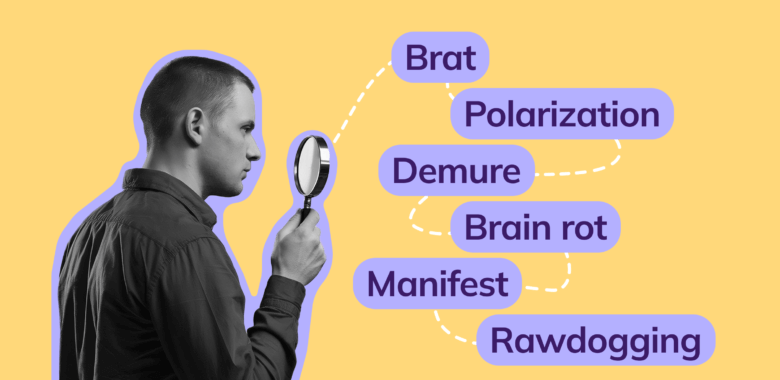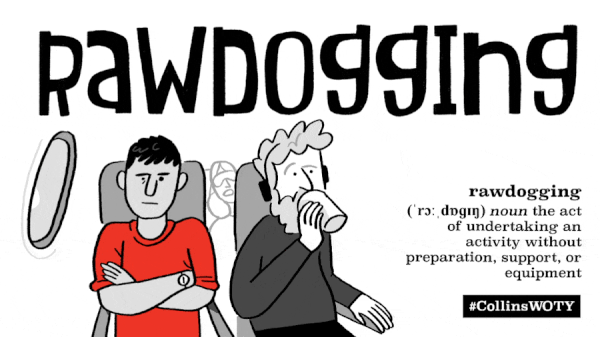Even if you weren’t on the internet that much in 2024, you must’ve heard about “brat” and “demure” — Word of the Year (WOTY) picks of the Collins Dictionary and Dictionary.com respectively. These were so much in the zeitgeist, that multiple other sources included them in their shortlists: Oxford, Merriam-Webster, and Cambridge Dictionary.
Before Charli XCX’s hit album, “brat” described a badly mannered child, but now it refers to someone “characterized by a confident, independent, and hedonistic attitude,” according to Collins. Dictionary.com explains its WOTY “demure” as “characterized by shyness and modesty; reserved.” The word, however, was also rediscovered thanks to TikToker Jools Lebron who used it in a satirical context. It’s hard to pinpoint what the new meaning of “demure” is. It can range from being shy as an act and showing sophistication to curating one’s public persona, etc.
On the surface, you may think that “brat” and “demure” could not be more far from one another. But they share something beyond just the change of meanings. Both words stand for the public need for authenticity and genuine self-expression. Breaking tight behavioral norms (like wearing, arguably, too much makeup) just comes with it.
Other words related to the tendency: social battery (Macquarie Dictionary, a dictionary of Australian English), looksmaxxing (Collins).











